Word Problems Worksheets for Ages 4-7 - Page 3
115 filtered results
-
From - To


Dividing with Landforms
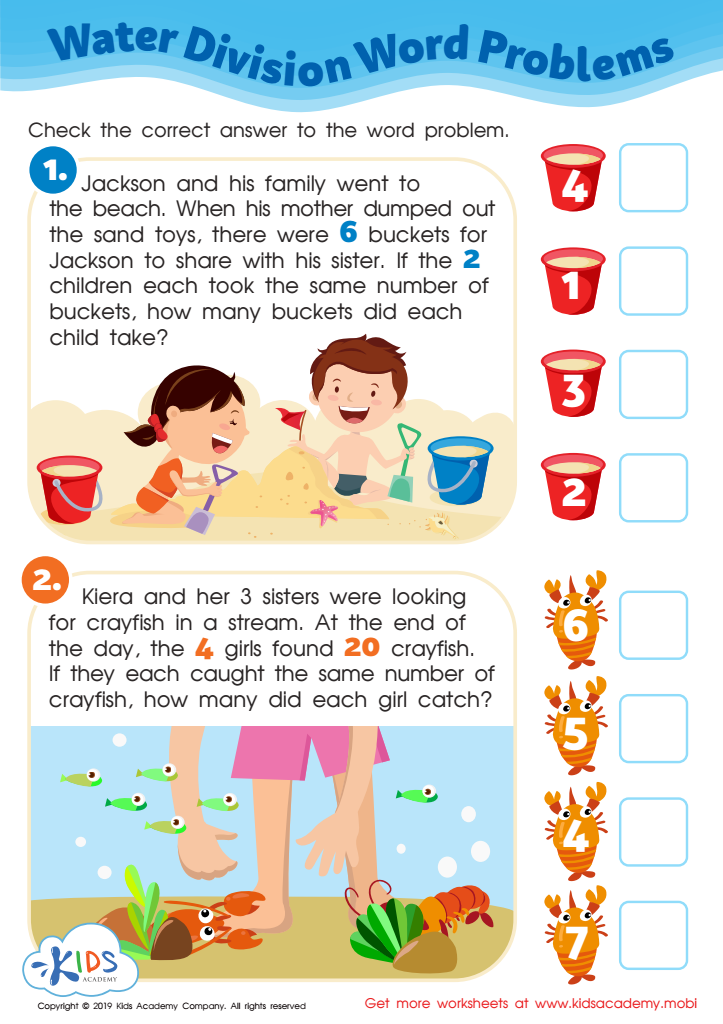

Water Division Word Problems Worksheet
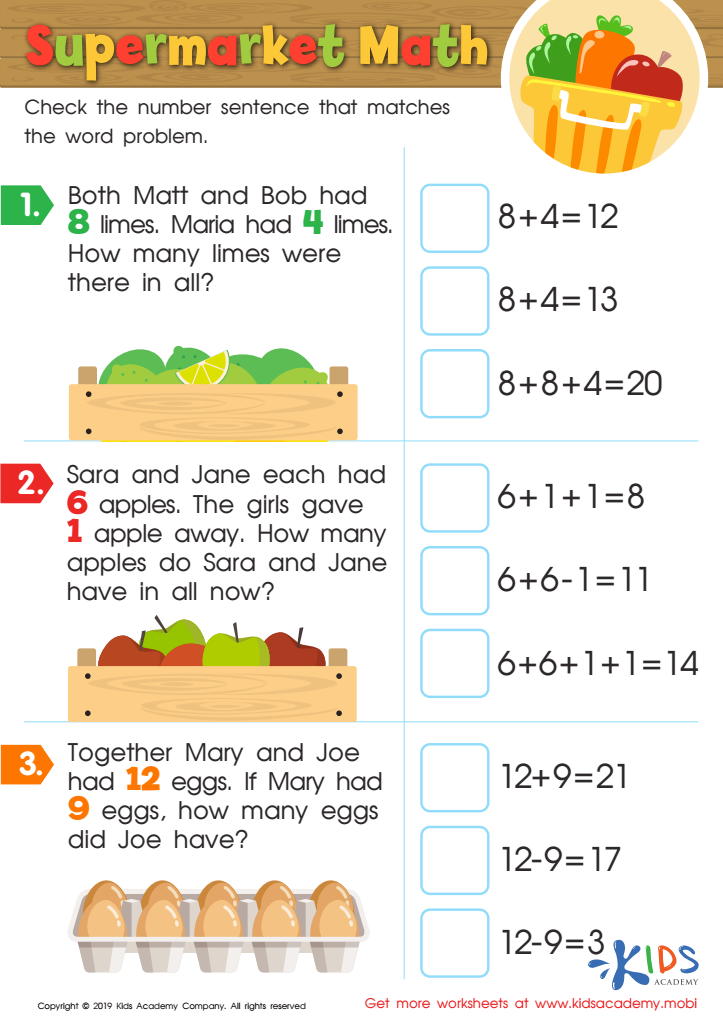

Supermarket Math Worksheet
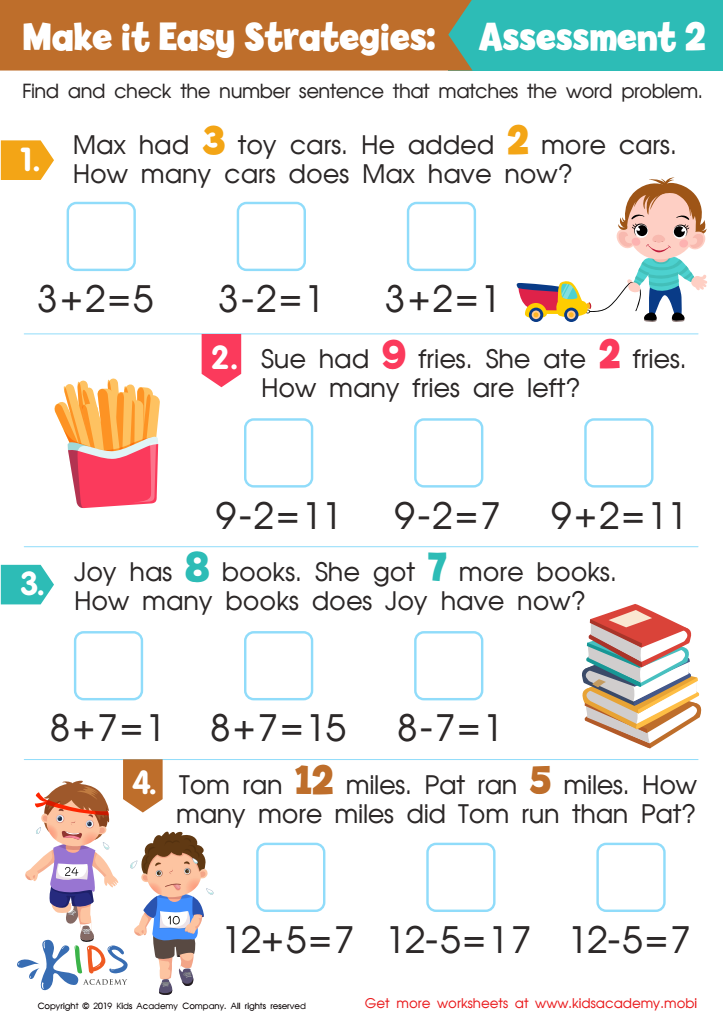

Make it Easy Strategies: Assessment 2 Worksheet
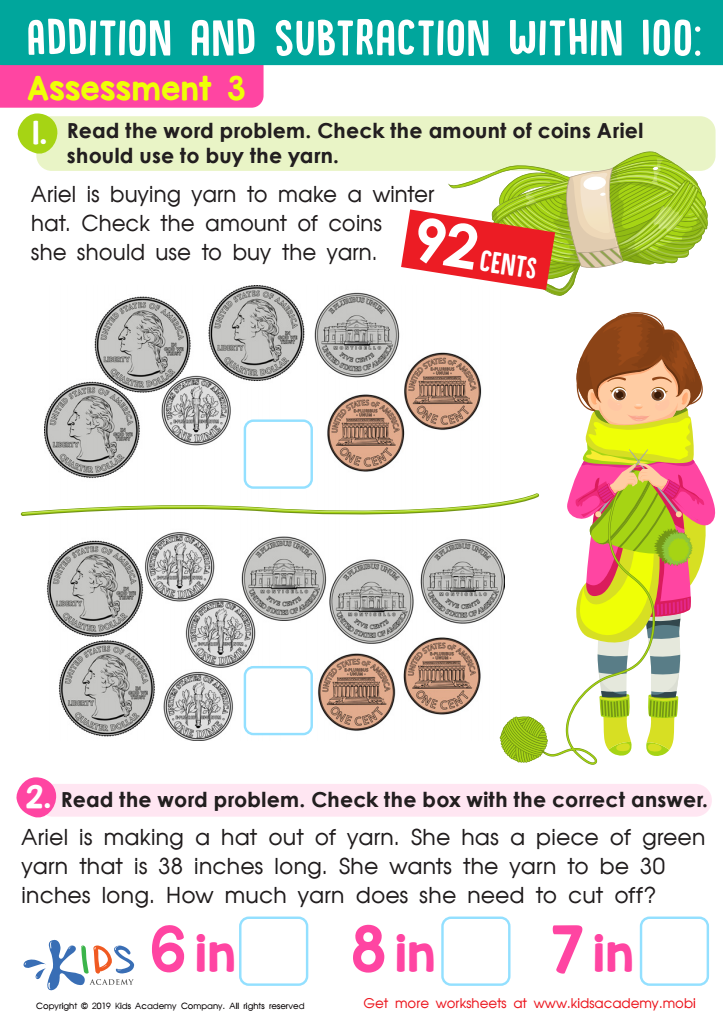

Assessment 3 Math Worksheet
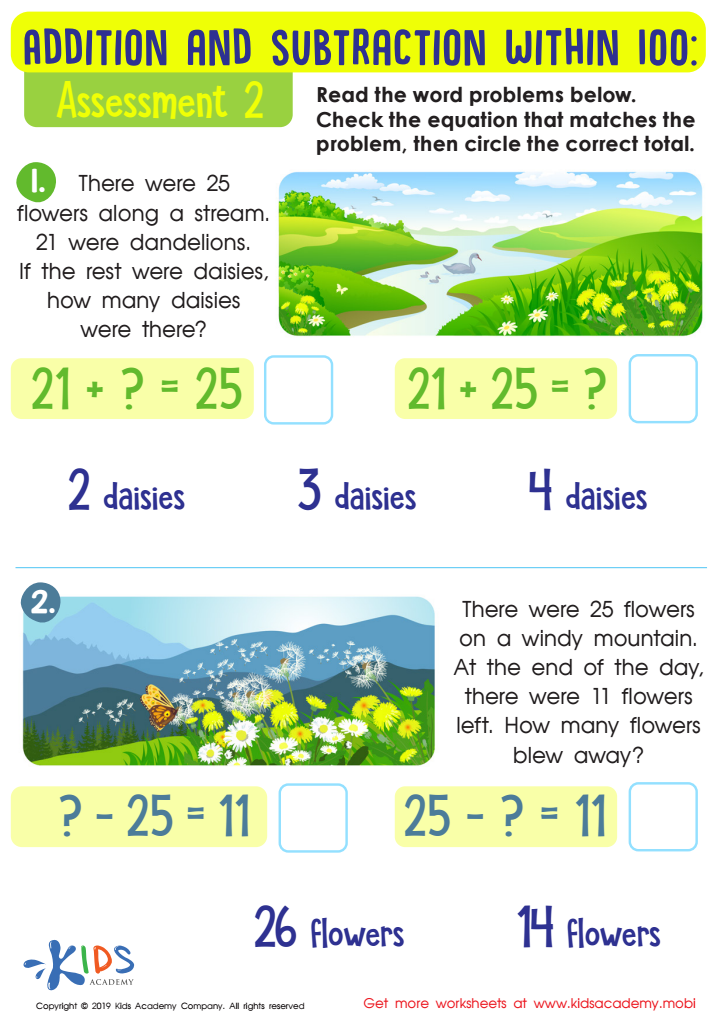

Assessment 2 Math Worksheet
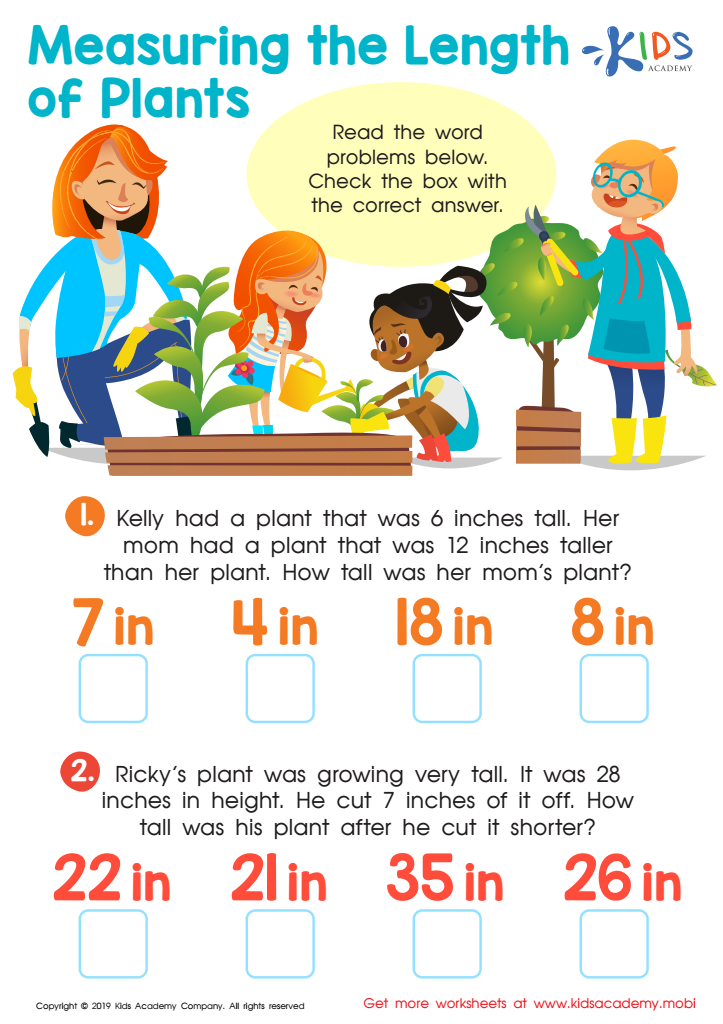

Measuring the Length of Plants Worksheet
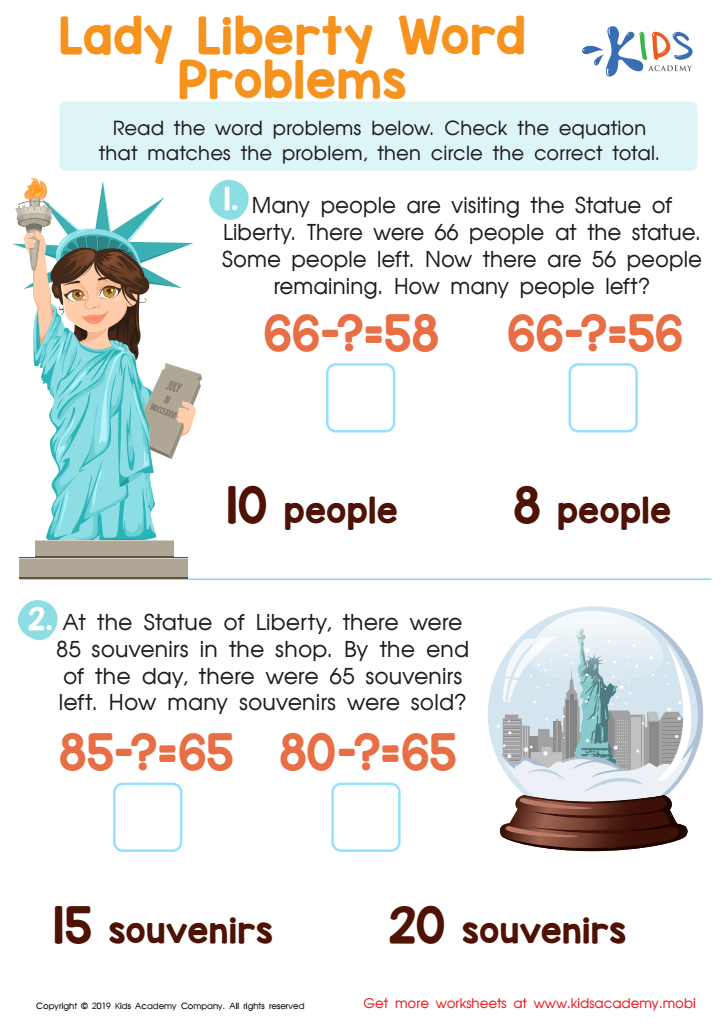

Lady Liberty Worksheet
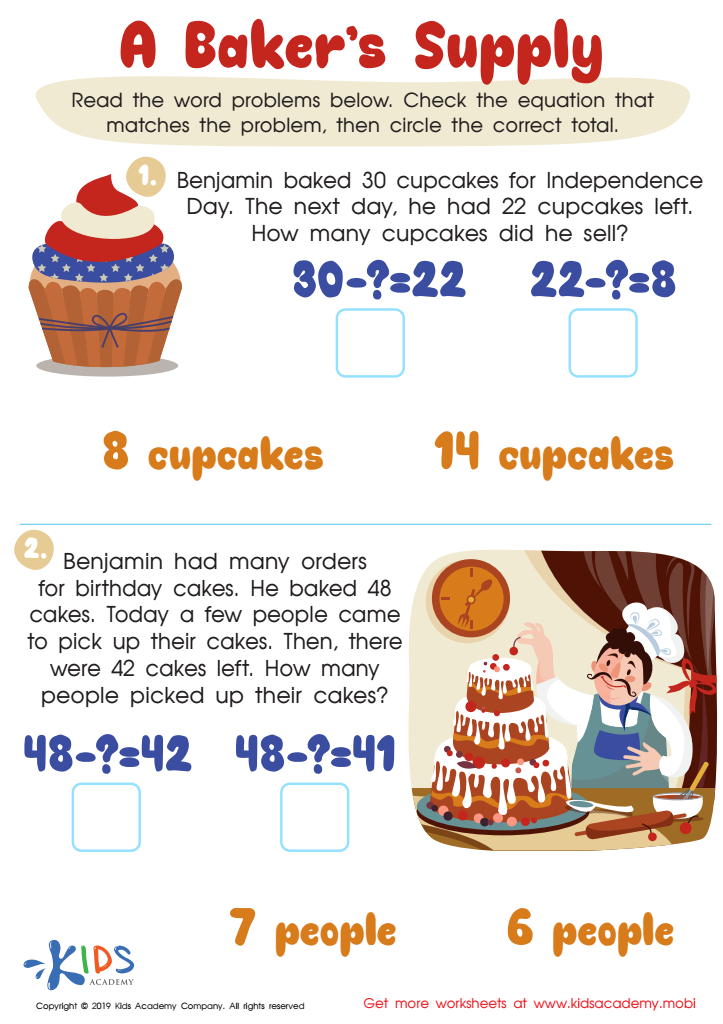

A Baker's Supply Worksheet
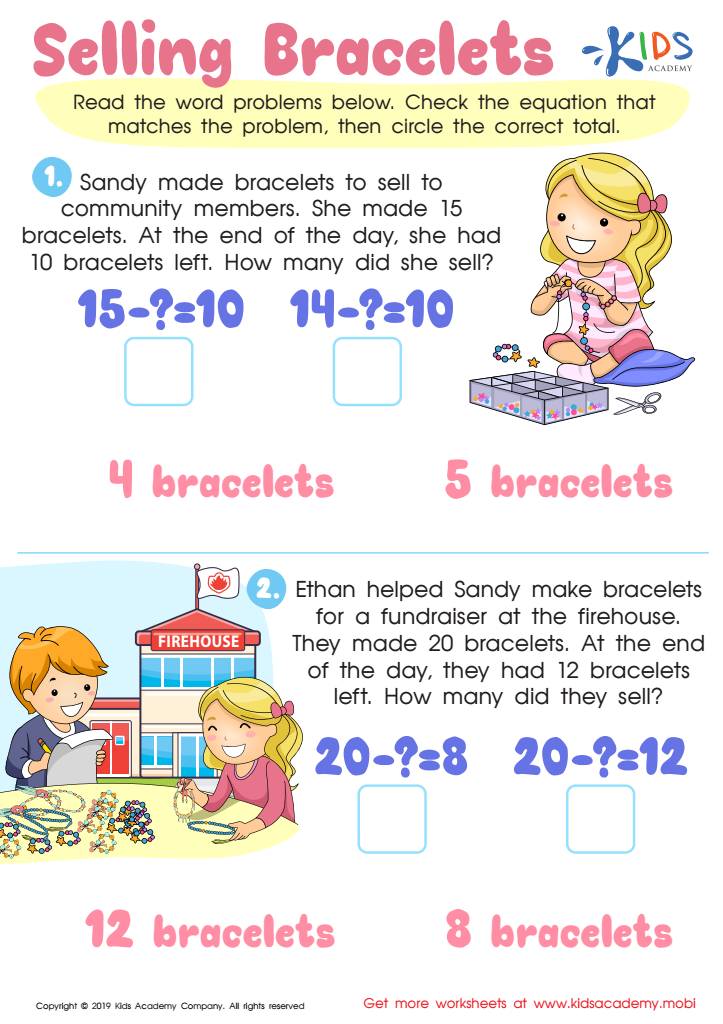

Selling the Bracelets Worksheet
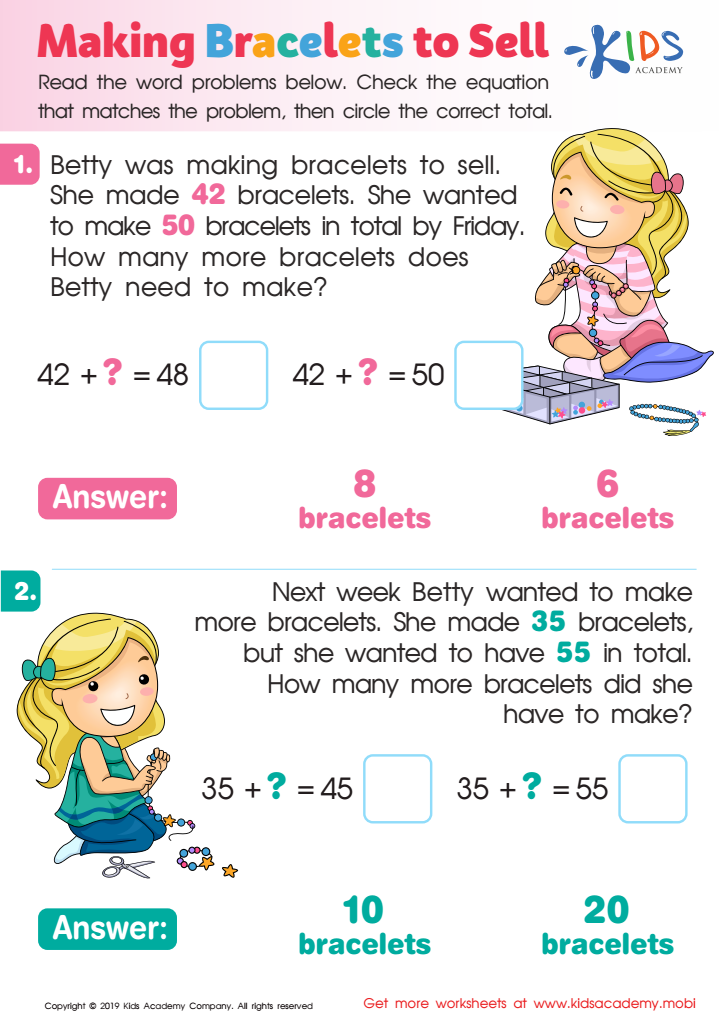

Making Bracelets to Sell Worksheet
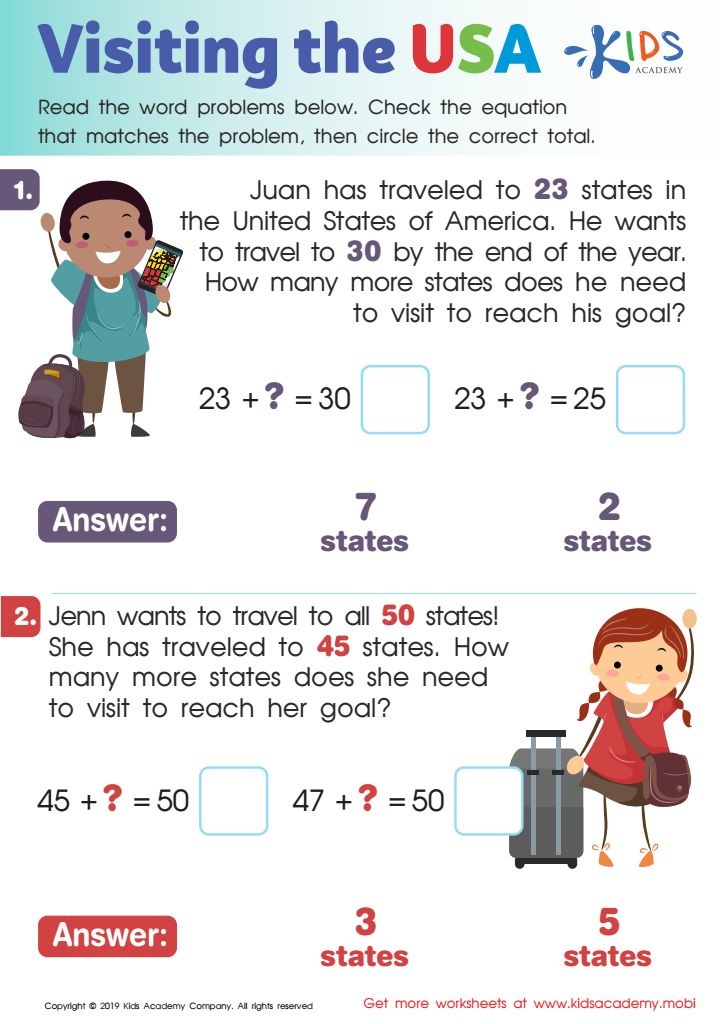

Visiting the USA Worksheet
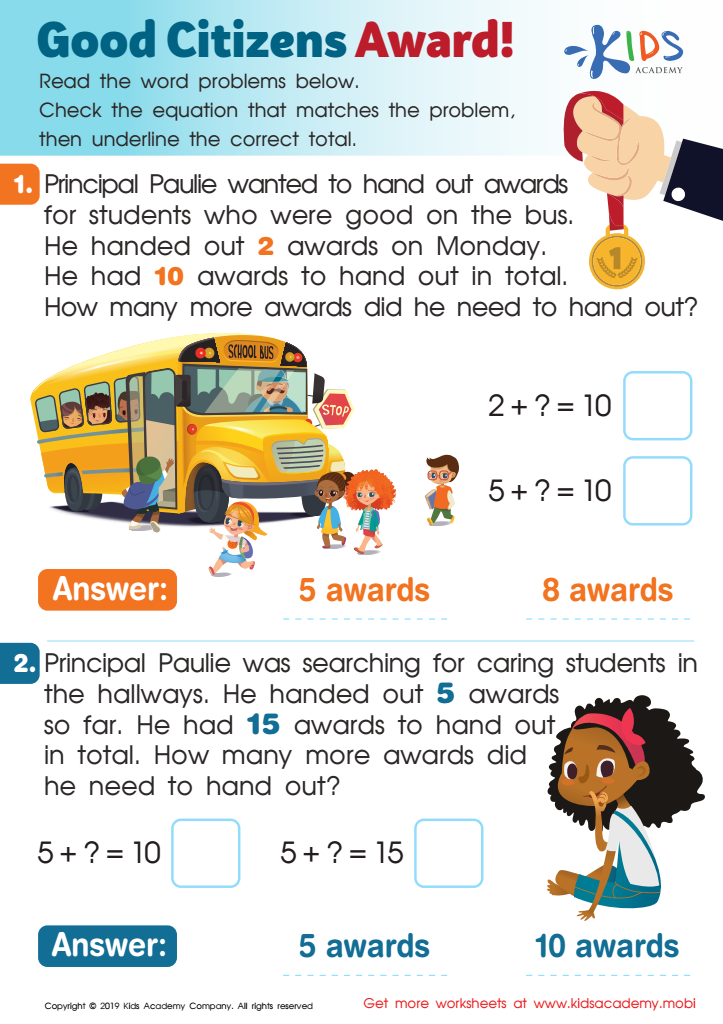

Good Citizens Award! Worksheet
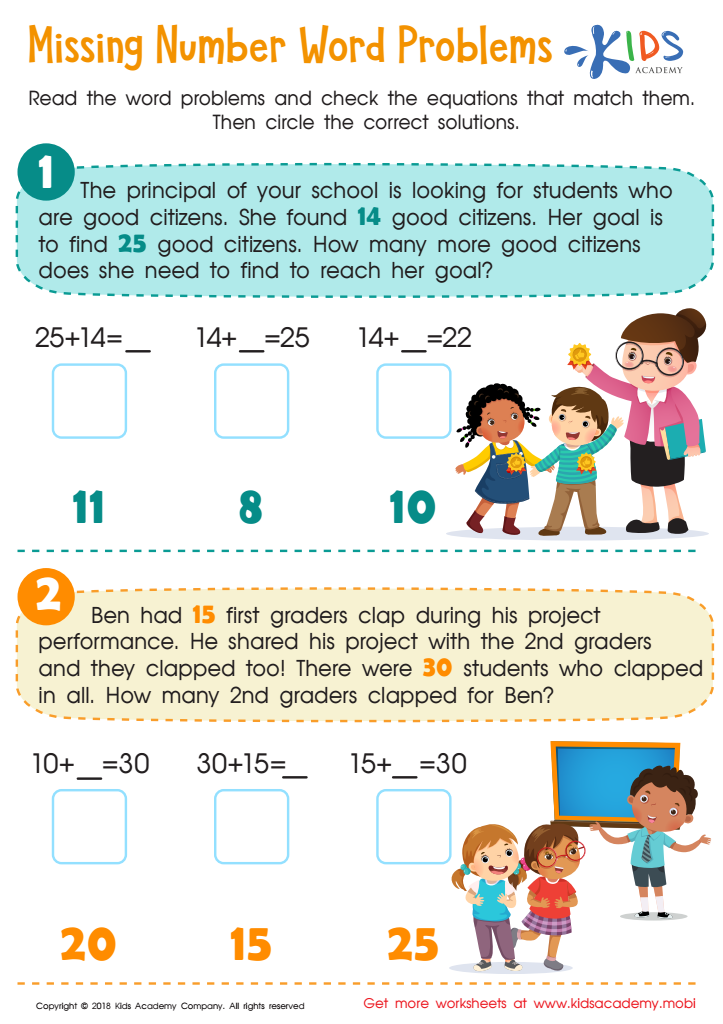

Missing Number Word Problems Worksheet
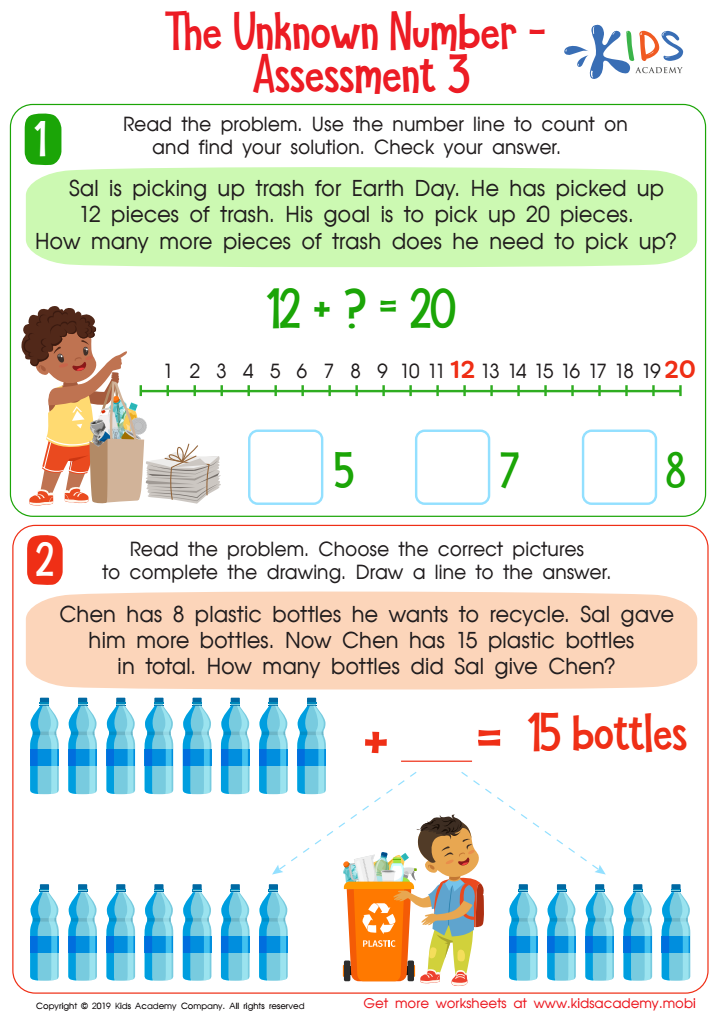

The Unknown Number - Assessment 3 Worksheet
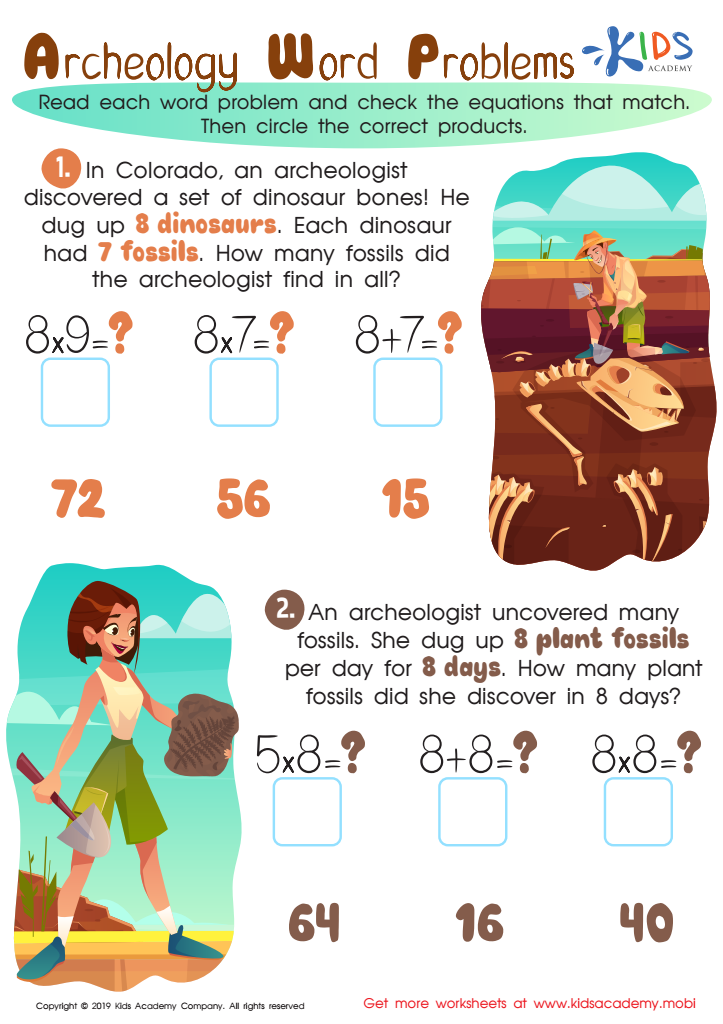

Archeology Word Problems Worksheet
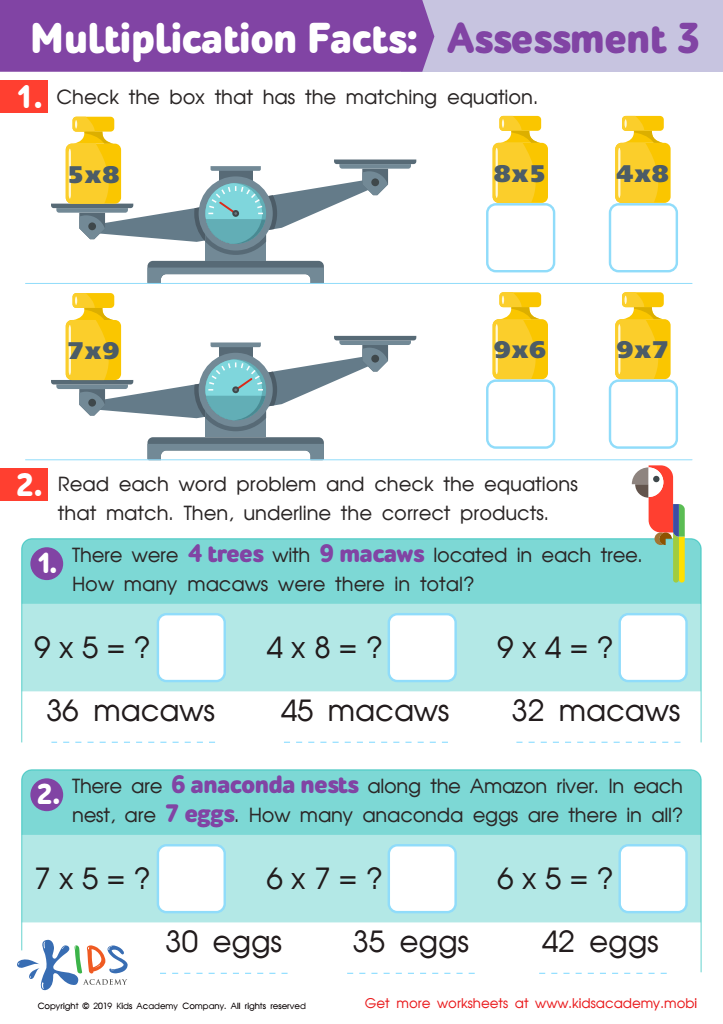

Multiplication Facts: Assessment 3 Worksheet
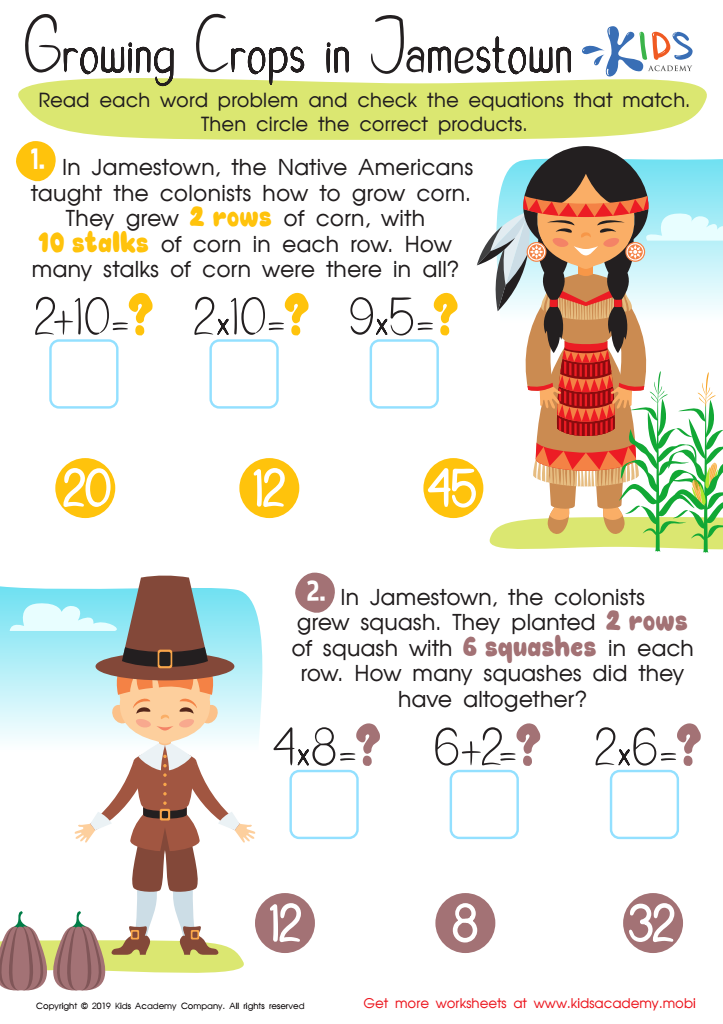

Growing Jamestown Worksheet
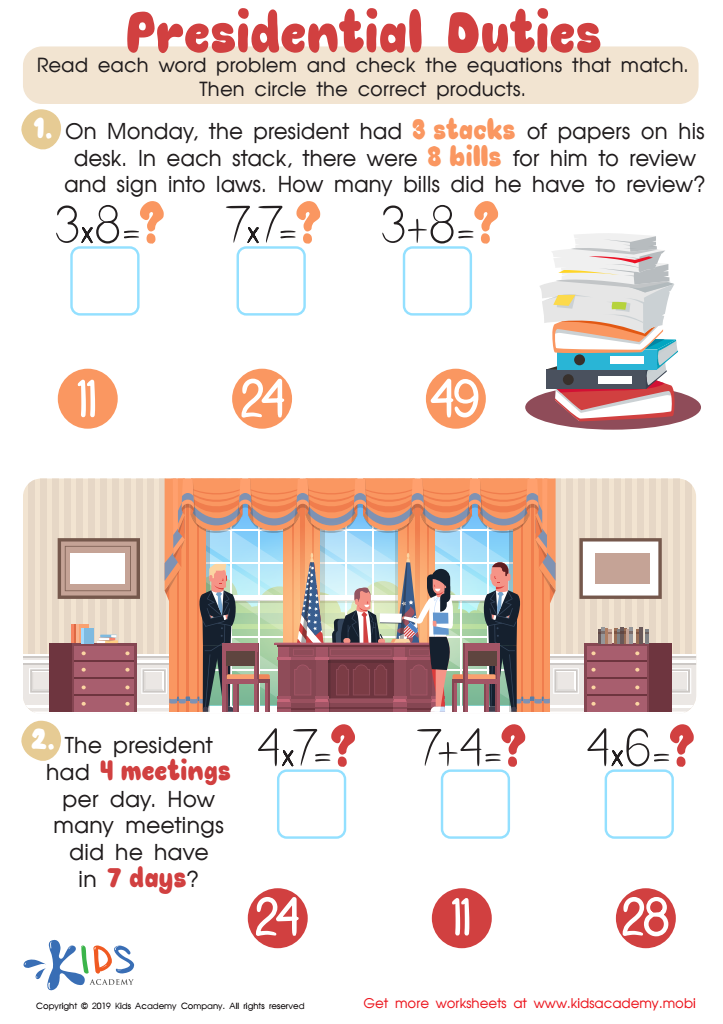

Presidential Duties Worksheet
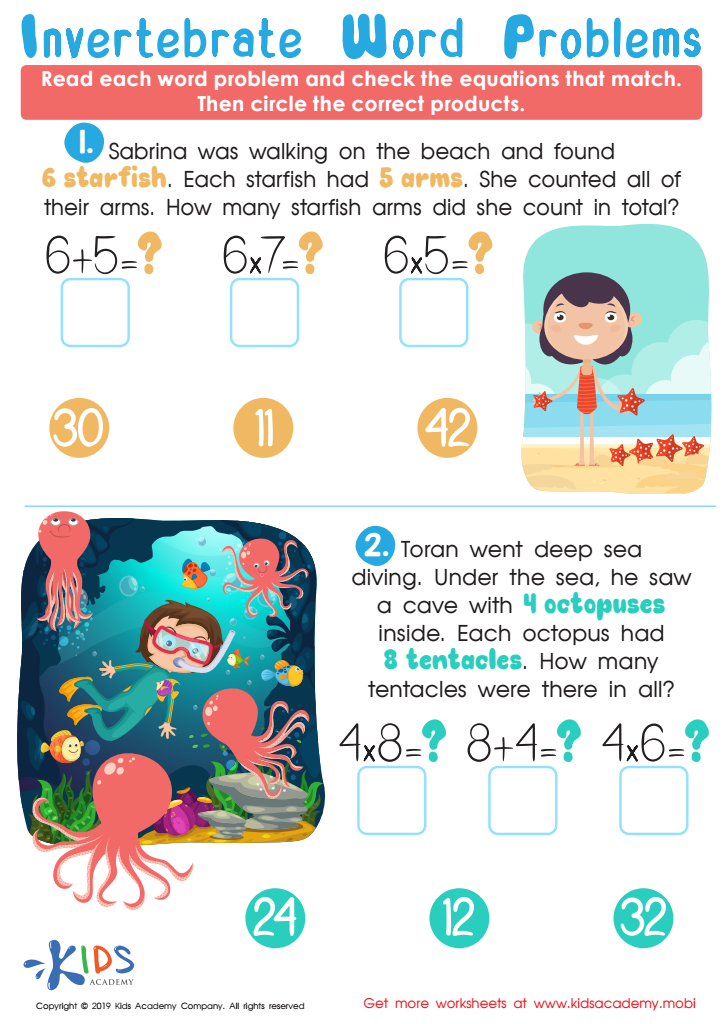

Invertebrate Problems Worksheet
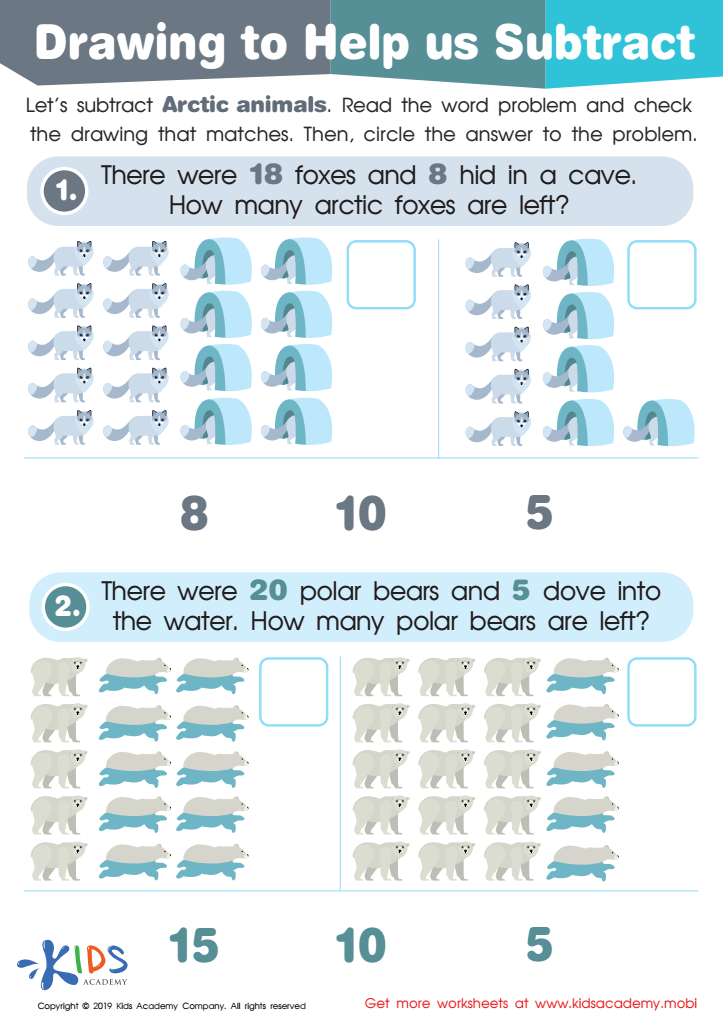

Drawing to Help Us Subtract Worksheet


Word Problems: Assessment 2 Worksheet
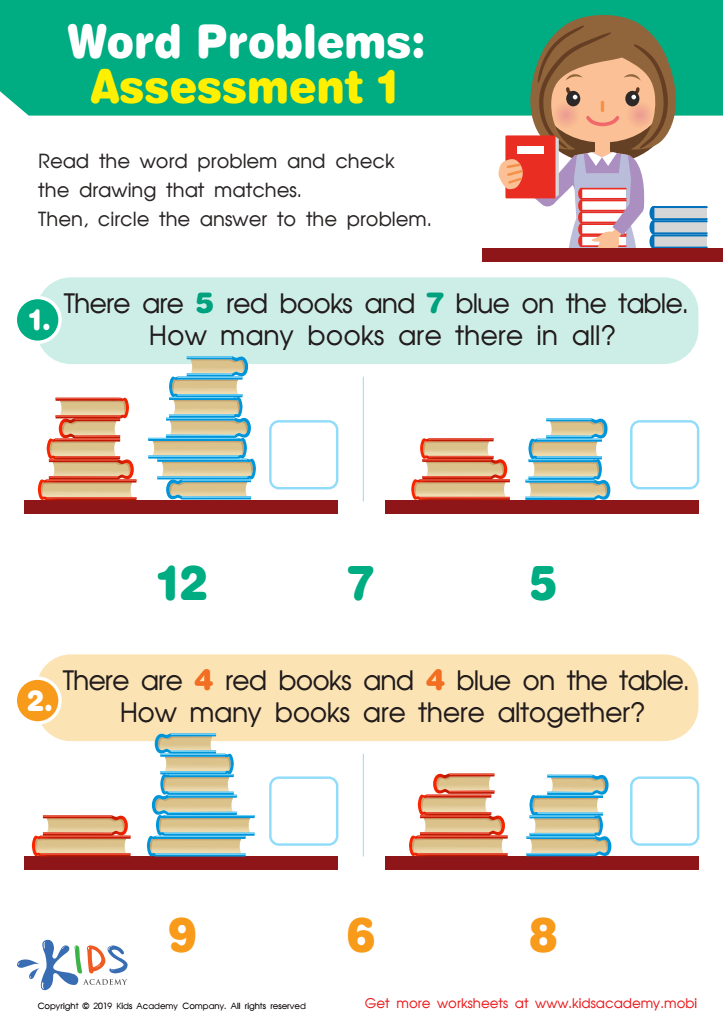

Word Problems: Assessment 1 Worksheet
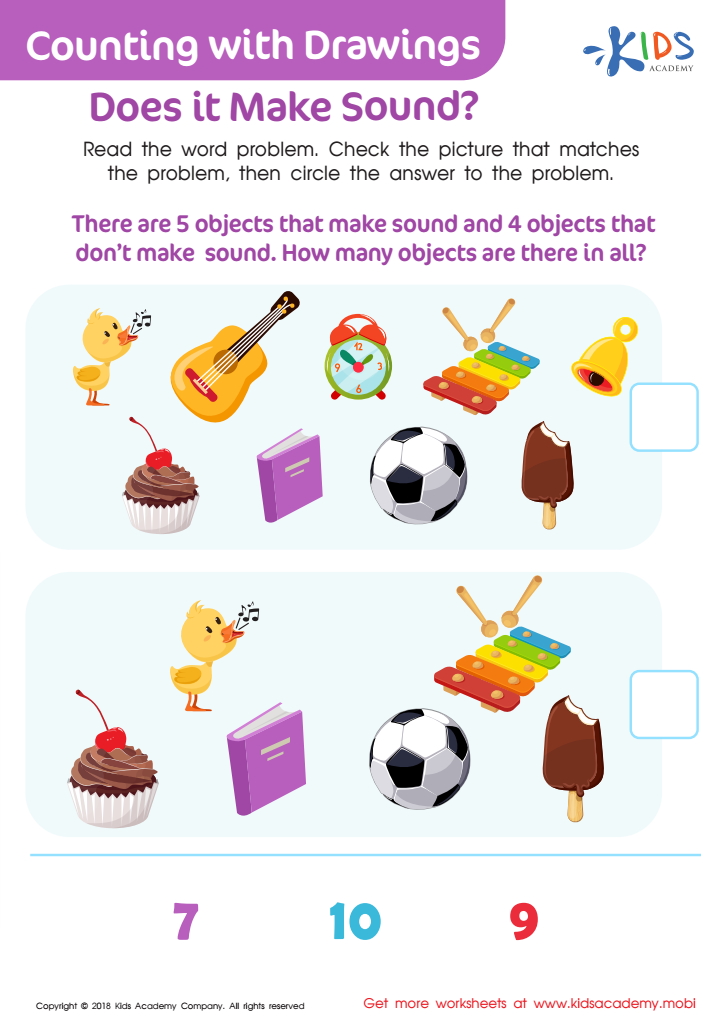

Counting With Drawings. Does It Make Sound? Worksheet
Word problems play a crucial role in the mathematical development of children aged 4-7, and both parents and teachers should prioritize them in early education. Firstly, word problems enhance critical thinking and problem-solving skills, which are essential for cognitive development. By asking children to decipher the context of a problem, they learn to analyze and interpret information, cultivate reasoning skills, and make connections between concepts.
Secondly, word problems encourage language development. Children must navigate vocabulary and sentence structures, which helps expand their language skills and comprehension. Justifying answers also fosters effective communication skills that are vital for academic success.
Moreover, engaging with word problems promotes a positive attitude toward math. When children see real-life connections in problem statements—such as sharing snacks or distributing toys—they often find the subject more relatable and enjoyable. This lays a foundation for a lifelong love of learning.
Finally, word problems integrate math with everyday experiences, grounding abstract concepts in reality. By focusing on word problems, parents and teachers set the stage for a well-rounded education that nurtures logical thinking, enhances communication, and builds confidence, preparing children for future academic challenges.
 Assign to My Students
Assign to My Students


.jpg)













